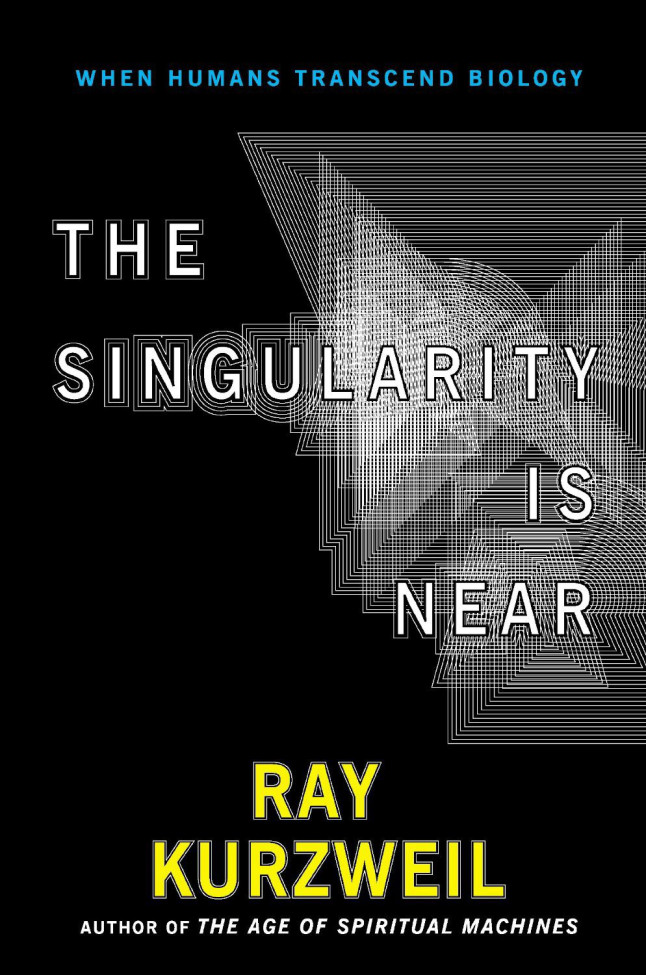January 05, 2018

When we think of preparing for our future, we used to think about going to good college and moving for a good job that would put us on a relatively good career trajectory for a stable life where we will prosper in a free market meritocracy where we compete against fellow humans.
However, over the course of the next few decades homo sapiens including generation GenZ and Alpha, may be among the last people to grow up in a pre automation and pre AGI world.
Considering the exponential levels of technological progress expected in the next 30 years, that’s hard to put into words or even historical context. Namely, because there’s no historical precedent and no words to describe what the next-gen AI might become.
Pre Singularity YearsKurzweil believes that the 21st century will achieve 1,000 times the progress of the 20th century.”
In the years before wide scale automation and sophisticated AI, we live believing things are changing fast. Retail is shifting to E-commerce and new modes of buying and convenience, self-driving and electric cars are coming, Tech firms in specific verticals still rule the planet, and countries still vye for dominance with outdated military traditions, their own political bubbles and outdated modes of hierarchy, authority and economic privilege.
We live in a world where AI is gaining momentum in popular thought, but in practice is still at the level of ANI: Artificial Narrow Intelligence. Rudimentary NLP, computer vision, robotic movement, and so on and so forth. We’re beginning to interact with personal assistants via smart speakers, but not in any fluid way. The interactions are repetitive. Like Google searching the same thing, on different days.
In this reality, we think about AI in terms useful to us, such as trying to teach machines to learn so that they can do things that humans do, but in turn help humans. A kind of machine learning that’s more about coding and algorithms than any actual artificial intelligence. Our world here is starting to shift into something else: the internet is maturing, software is getting smarter on the cloud, data is being collective, but no explosion takes place, even as more people on the planet get access to the Web.
 When Everything Changes
When Everything Changes
Between 2014 and 2021, an entire 20th century’s worth of progress will have occurred, and then something strange happens, it begins to accelerate until more progress is being made in shorter and shorter time periods. We have to remember, the fruit of this transformation won’t belong just to Facebook, or Google or China or the U.S., it will be just the new normal for everyone.
Many believe sometime between 2025 and 2050, AI becomes native to self-learning, in that it adopts an Artificial General Intelligence, that completely changes the game.

After that point, not only does AI outperform human beings in tasks, problem solving and even human constructs of creativity, emotional intelligence, manipulating complex environments and predicting the future — it reaches Artificial Super Intelligence relatively quickly thereafter.
 We live in Anticipation of the Singularity
We live in Anticipation of the Singularity
As such in 2017–18, we might be living in the last “human” era. Here we think of AI as “augmenting” our world, we think of smart phones as miniaturized super computers and the cloud as an expansion of our neocortex in a self-serving existence where concepts such as wealth, consumption, and human quality of life trumps all other considerations.
Here we view computers as man-made tools, robots as slaves, and AI as a kind of “software magic” that’s obliged to our bidding.
Whatever the bottle-necks of carbon based life forms might be, silicon based AGI may have many advantages. Machines that can self-learn, self-replicate and program themselves might come into being in part due to copying how the human brain works, but like the difference between Alpha Go and Alpha Go Zero, the real breakthrough might be made from a blank slate.
While humans appear destined to create AGI, it doesn’t stand to reason that AGI will think, behave or have motivations like people, cultures or even our models of what super-intelligence might be like exhibit.
Artificial Intelligence with Creative AgencyFor human beings, the Automation Economy only arrives after a point where AGI has come into being. Such an AGI would be able to program robots, facilitate smart cities and help humans govern themselves in a way that is impossible today.
AGI could also manipulate and advance STEM fields such as green tech, biotech, 3D-printing, nanotech, predictive algorithms, and quantum physics likely in ways humans up to that point could only achieve relatively slowly.
Everything pre singularity would feel like ancient history. A far more radical past than before the invention of computers or the internet. AGI could impact literally everything, as we are already seeing with primitive machine intelligence systems.
In such a world AGI would not only be able to self-learn and surpass all of human knowledge and data collected up to that point, but create its own fields, set its own goals and have its own interests (beyond which humans would likely be able to recognize). We might term this Artificially Intelligent Creative Agency (AICA).
AI Not as a Slave, but as a LegacySuch a being would indeed feel like a God to us. Not a God that created man, but an entity that humanity made, in just a few thousand years since we were storytellers, explorers and then builders and traders.
A human brain consists of 86 billion neurons linked by trillions of synapses, but it’s not networked well to other nodes and external reality. It has to “experience” them in systems of relatedness and remain in relative isolation from them. AICA, would not have this constraint. It would be networked to all IoT devices, be able to hack into any human system, network or quantum computer. AICA would not be led by instincts of possession, mating, aggression or other emotive agencies of the mammalian brain. Whatever ethics, values and philosophical constraints it might have, could be refined over centuries, not mere months and years of an ordinary human lifetime.
AGI might not be humanity’s last invention, but symbolically, it would usher in the 4th industrial revolution and then some. There would be many grades and incidents of limited self-learning in deep learning algorithms. But AGI would represent a different quality. Likely it would instigate a self-aware separation between humanity and the descendent order of AI, whatever it might be.
 High-Speed Quantum Evolution to AGI
High-Speed Quantum Evolution to AGI
The years before the Singularity
The road from ANI to AGI to ASI to some speculative AICA is not just a journey from narrow to general to super intelligence, but an evolutionary corridor of humanity across a distance of progress that’s could also be symbiotic. It’s not clear how this might work, but some human beings to protect their species might undertake “alterations”. Whatever these cybernetic, genetic or how invasive these changes might be, AI is surely going to be there every step of the way.
In the corporate race to AI, governments like China and the U.S. also want to “own” and monetize this for their own purposes. Fleets of cars and semi-intelligent robots will make certain individuals and companies very rich. There might be no human revolution from wealth inequality until AGI, because comparatively speaking, the conditions for which AGI arises may be closer than we might assume.
We Were Here
If the calculations per second (cps) of the human brain are static, at around 1⁰¹⁶, or 10 quadrillion cps, how much does it take for AI to replicate some kind of AGI field? Certainly it’s not just processing power or exponentially faster super-computers or quantum computing, or improved deep learning algorithms, but a combination of all of these and perhaps many other factors as well. In late 2017, Alpha Go Zero “taught itself” Go without using human data but generating its own data by gaming itself.
Living in a world that can better imagine AGI will mean planning ahead, not just coping with change to human systems. In a world where democracy can be hacked, and one- party socialism likely is the heir apparent to future iterations of artificial intelligence where concepts like freedom of speech, human rights or an openness to diversity of ideas is not practiced in the same way, it’s interesting to imagine the kinds of AI human controlled systems that might occur before AGI arrives (if it ever even arrives).
 The Human Hybrid Dilemma
The Human Hybrid Dilemma
Considering our own violent history of the annihilation of biodiversity, modeling AI by plagiarizing the brain through some kind of whole brain emulation, might not be ethical. While it might mimic and lead to self-awareness, such an AGI might be dangerous. In the same sense we are a danger to ourselves and to other life forms in the galaxy.
Moore’s Law might have sounded like an impressive analogy to the Singularity in the 1990s, but not today. More people working in the AI field, are rightfully skeptical of AGI. It’s plausible that even most of them suffering from a linear vs. exponential bias of thinking. In the path towards the Singularity, we are still living in slow motion.
We Aren’t Ready for What’s InevitableWe’re living in the last era before Artificial General Intelligence, and as usual, human civilization appears quite stupid. We don’t even actively know what’s coming.
While our simulations are improving, and we’re “discovery” exoplanets that are most likely to be life-like, our ability to predict the future in terms of the speed of technology, is mortifyingly bad. Our understanding of the implications of AGI and even machine intelligence on the planet are poor. Is it because this has never happend in recorded history, and represents such a paradigm shift, or could there be another reason?
Amazon can create and monetize patents in a hyper business model, Google, Facebook, Alibaba and Tencent can fight over talent AI talent luring academics to corporate workaholic lifestyles with the ability to demand their salary requests, but in 2017, humanity’s vision of the future is still myopic.
We can barely imagine that our prime directive in the universe might not be to simply grow, explore and make babies and exploit all within our path. And, we certainly can’t imagine a world where intelligent machines aren’t simply our slaves, tools and algorithms designed to make our lives more pleasurable and convenient.


This article was originally published by:
https://medium.com/@Michael_Spencer/were-living-in-the-last-era-before-artificial-general-intelligence-3bc4536e7f24





